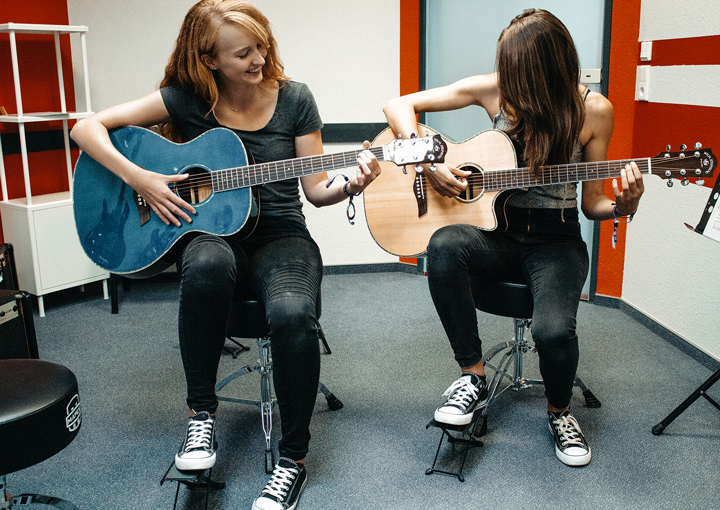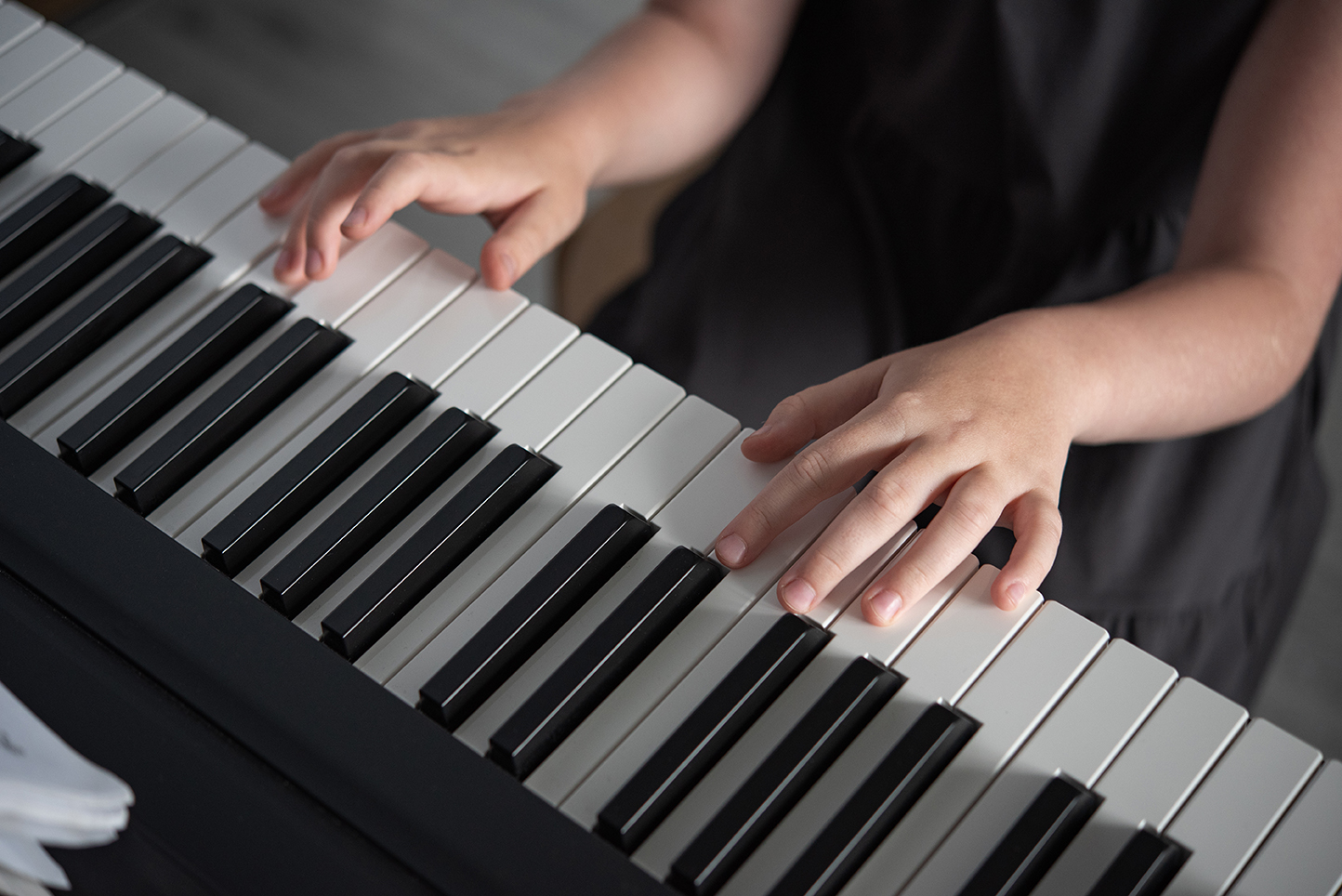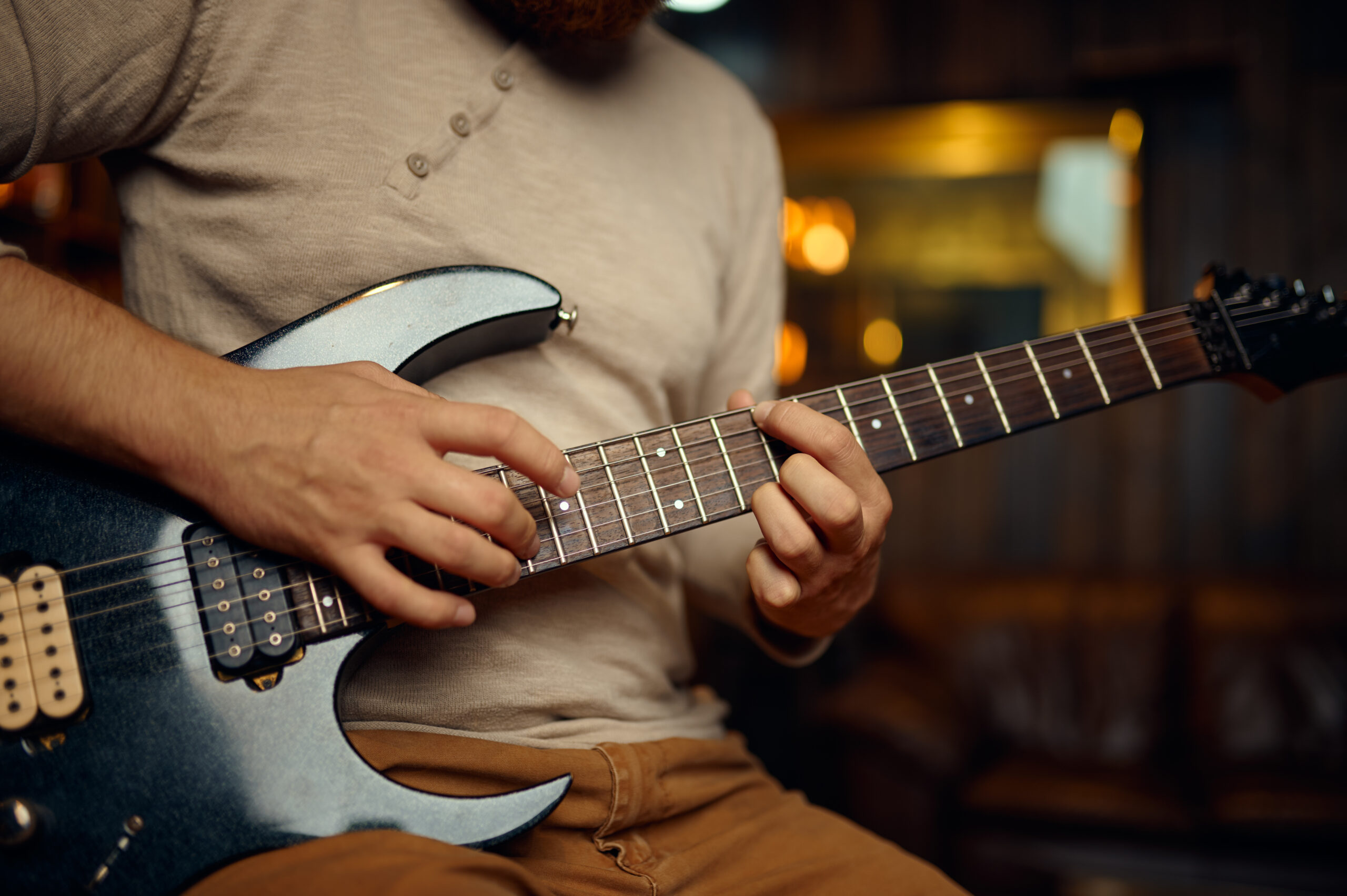This is why group lessons are so effective
Latest Posts • January 26, 2021
Music creates community. You might have noticed this if you have ever sung along with the fan chants in a stadium. With the help of music, people can express feelings or even generate a community spirit. It is believed that this is one of the origins of music. It arose as a means of bonding between members of a group. And this was at a time when our ancestors lived together in small communities and their survival depended on a close and reliable bond between group members. So you could say group lessons are the most original form of making music. Yet, this form of musical instruction is often underestimated. Without any good reason. In fact, group lessons can be particularly effective.

Learning with and from each other
Group lessons are still often considered an “inferior” form of instruction. For many people, group lessons are the best form of learning. Some people assume that the teacher has less time for the individual student in group lessons and therefore many students are left out. But those who assume this, overlook the fact that you do not only learn from the teacher in group lessons, but also from your fellow students.
“Children are the mirrors of their environment.”
H.P. Becker, ‘Unleash the Secret of Education and Learn How to Raise a Happy Child’
Humans have so-called mirror neurons. These are nerve connections in the brain that are activated as soon as we observe someone performing an action. The mirror neurons are responsible for the fact that we learn particularly well when we are allowed to watch others. Learning by observation is a way of learning that people have used for thousands of generations. However, it has disappeared more and more. Today, we are more familiar with the model where a teacher shows how the students how to do something once and they are supposed to copy it. If it doesn’t work right away, they are supposed to practice, practice, and practice. The longer or more often we can observe an activity, the better we learn. The advantage of group lessons is that the students can observe not only the teacher, but also their fellow students, for example, while playing a newly learned piece.
Group lessons are not only good to learn with each other, but also learn from each other.
Students inspire each other during group lessons. And that doesn’t just apply to the execution of certain movement sequences when making music.
What are mirror neurons?
Mirror neurons are neurons that are activated by performing and observing movements. They are related to empathic, social and imitative behavior and thus represent a fundamental tool for our learning.
Motivation is contagious
Everyone knows the saying “laughter is contagious”. This also has to do with mirror neurons. Laughter can be triggered simply by seeing or hearing other people laugh. Mirror neurons not only have an impact on learning actions, but also on our emotional level. We experience what others feel in a kind of internal simulation, and this often leads to an “emotional contagion”. In this way, motivation is also “contagious”. Those who learn together with other motivated people are encouraged to perform better. A group lesson in a relaxed and good atmosphere does not simply bring fun but a real learning success.
Of course, the whole thing also works the other way around. We also mirror “negative” feelings such as anger or resentment. And, of course, we can also refuse to mirror feelings if we are not open enough or if other strong feelings block us.
That is why it is tremendously important that good group teaching takes place with a teacher who is aware of the effect of his or her behavior and the behavior of individual students on the entire group and who knows how to specifically create a good learning atmosphere.
This is one of the reasons why we not only emphasize professional skills in our music trainers, but also focus on the training of social skills of our trainer education.
Conclusion
With a properly trained teacher, no one misses out even during group lessons. Instead, the students encourage each other and do not only learn from the teacher but also from each other.
Sources / to read more:
Vera Birkenbihl: Eltern-Nachhilfe. riva verlag.
Hans Peter Becker: Unleash the Secret of Education and Learn How to Raise a Happy Child. Modu Publishing.




Leave A Comment